Create a simple Self-Extracting package with Paquet Builder in a few steps (quick tutorial)¶
Paquet Builder includes many features, which might feel overwhelming when you're starting. This quick tutorial guides you through the process of creating a functional package in just a few steps. It’s perfect for beginners who want to learn the basic functions of Paquet Builder.
Goal: Add source files to a package and create it.
1. Start Paquet Builder and choose "New Package"¶
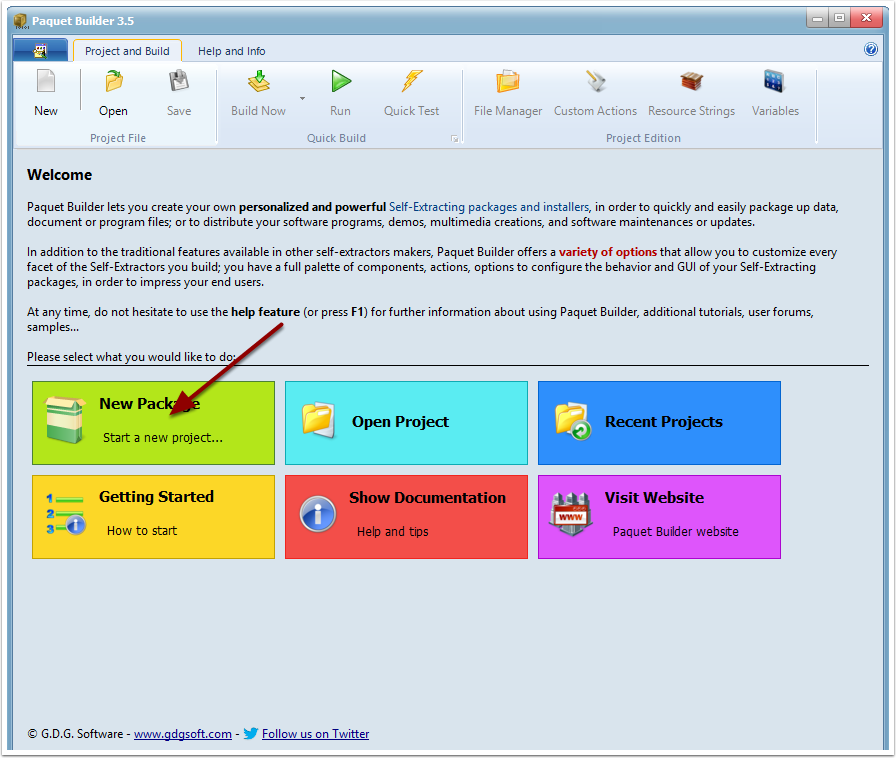
2. Choose "Standard Package" and confirm¶
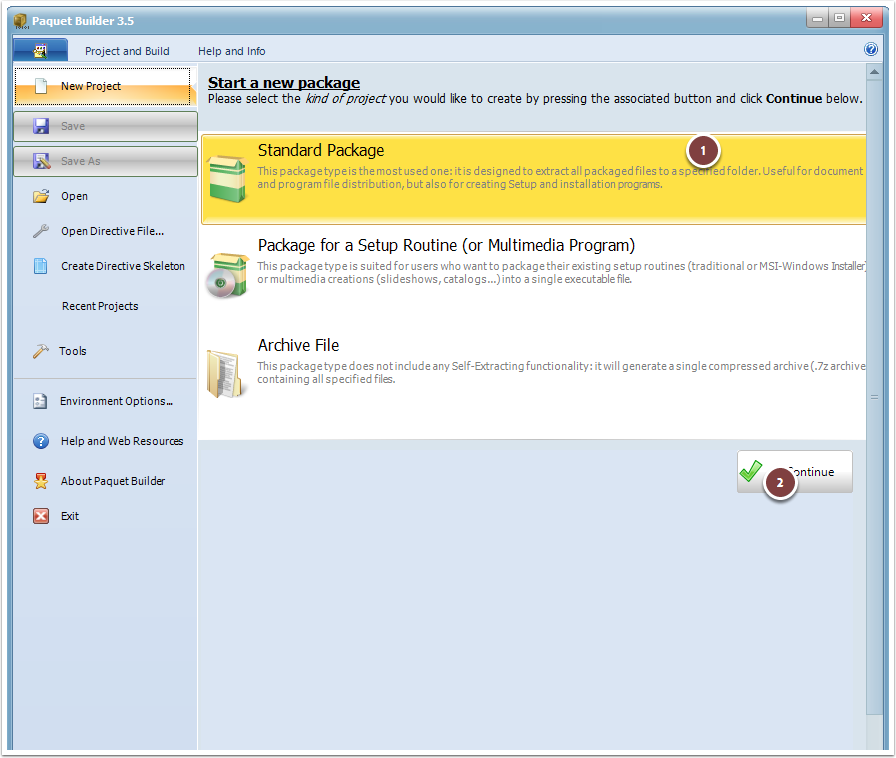
3. Enter the title for your package and company information if required¶
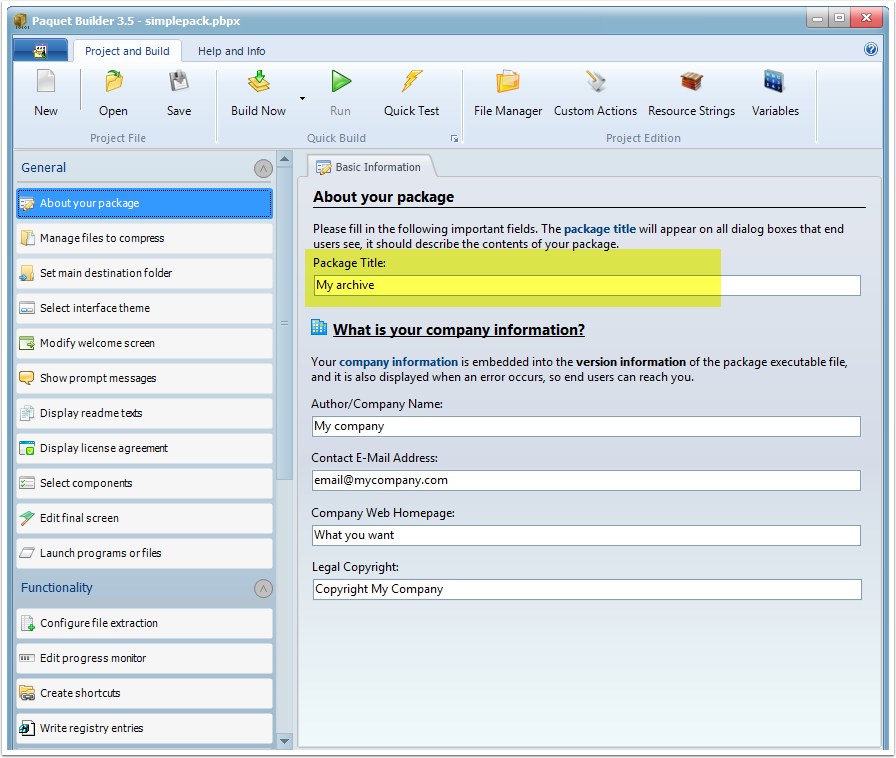
On the "About your package" page, enter a title for your package, such as “My Archive Tutorial.” If the company information fields are blank, fill them in as needed.
4. Click File Manager to add source files to your package¶
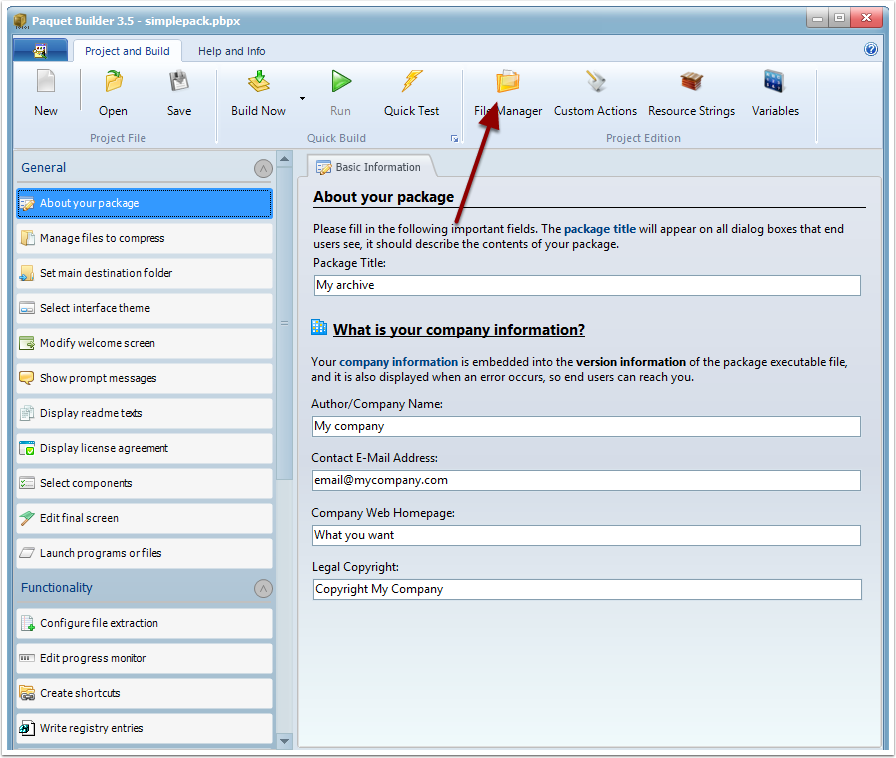
4.1 Choose Add or drag and drop files from Windows Explorer¶
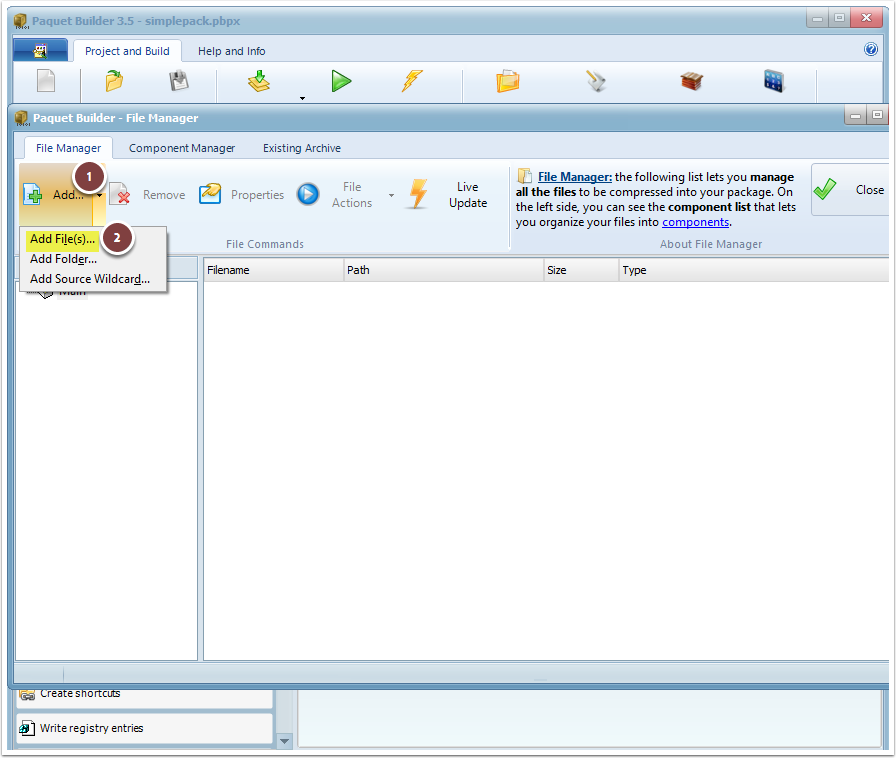
4.2 After adding files, close the File Manager¶
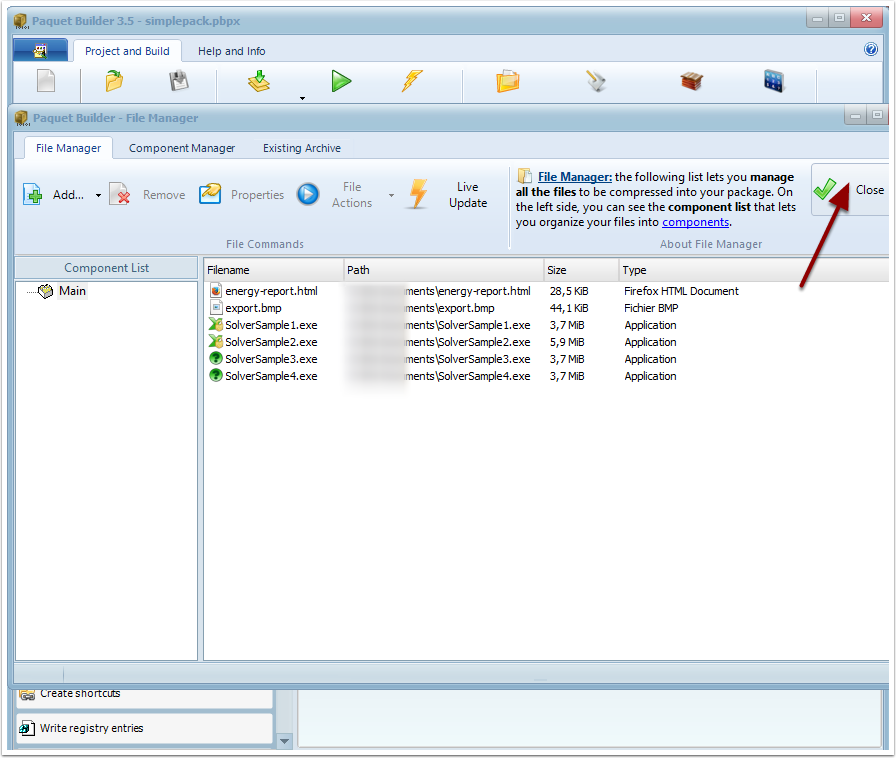
5. Choose the destination folder for unpacked files¶
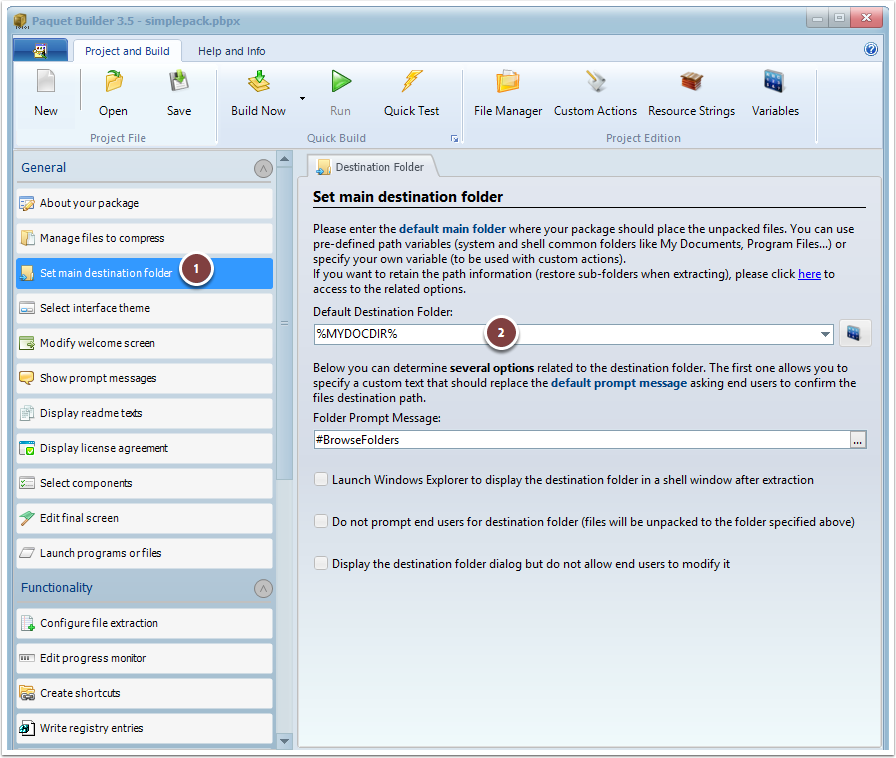
In the “Default Destination Folder” field, specify where the files will be unpacked. By default, it uses %MYDOCDIR% (the “My Documents” path on the destination computer). Enter the value:
%MYDOCDIR%\My Archive Tutorial.
When the package runs, the default folder will be something like:
c:\users\MyUser\my documents\My Archive Tutorial.
6. Create a "Welcome Screen" to inform users about the package¶
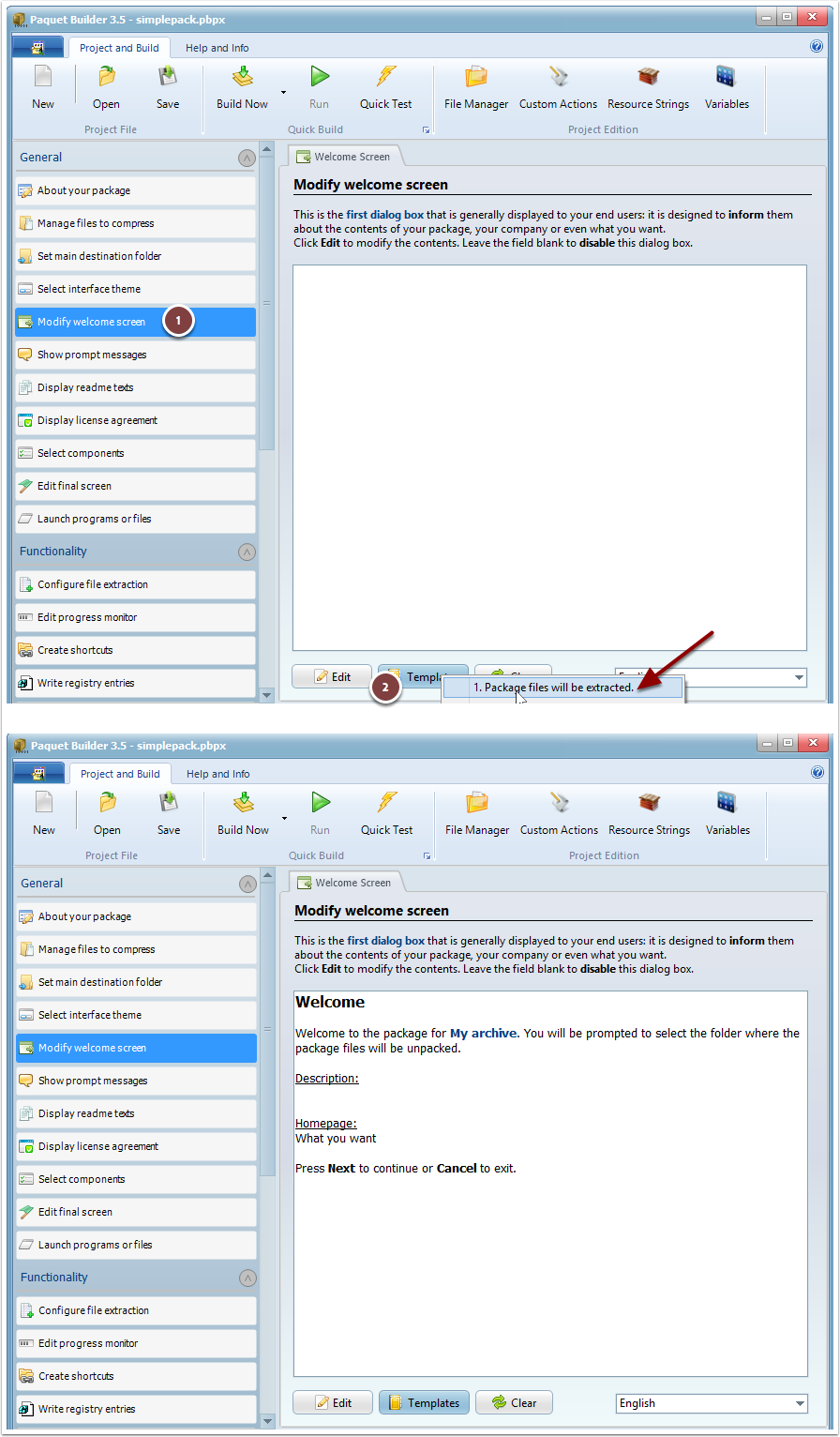
You can edit this screen using the Rich Content Editor. Enter a message like:
“Welcome! This will unpack the files for My Archive Tutorial.”
Click OK to save your changes.
7. Specify the output file path for the Self-Extracting package¶
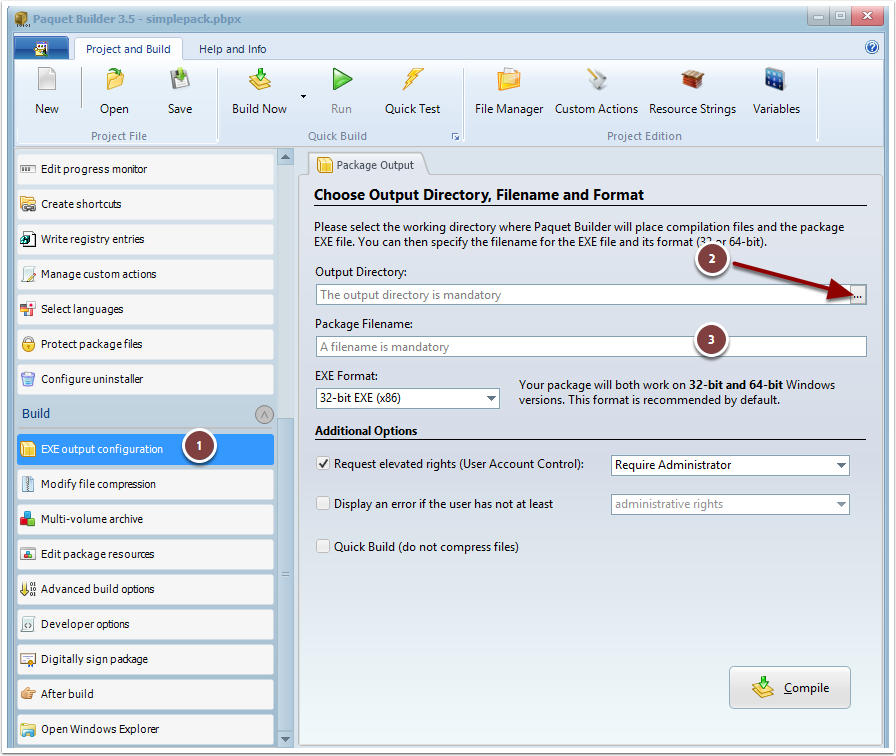
In the "EXE output configuration" under Build, specify the path and filename for the Self-Extracting executable file that will be created.
8. Click "Build Now" to create the Self-Extracting EXE file¶
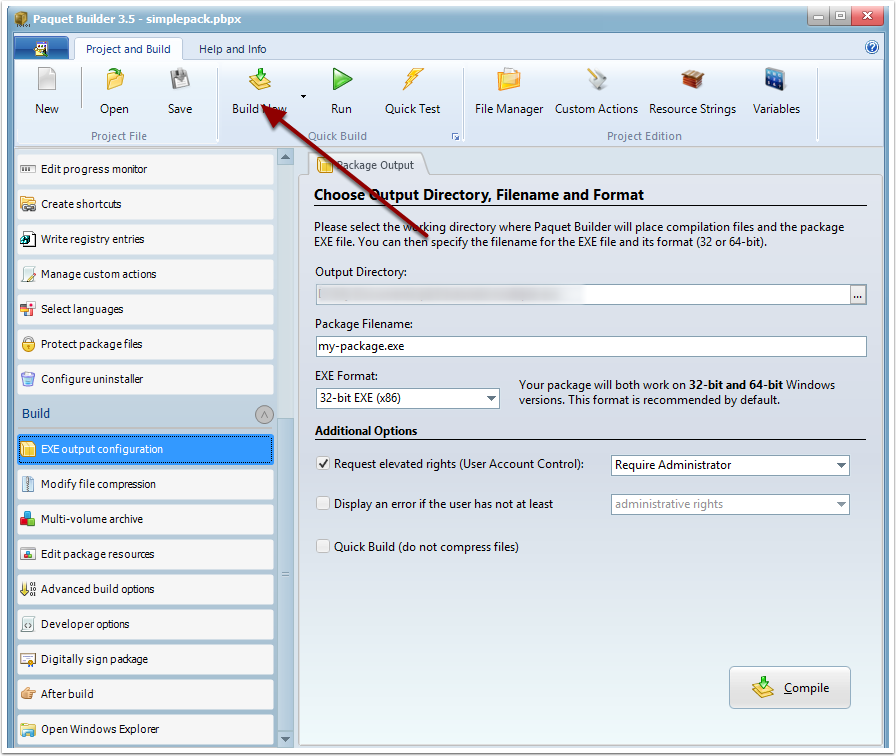
9. Test the EXE file after compilation¶
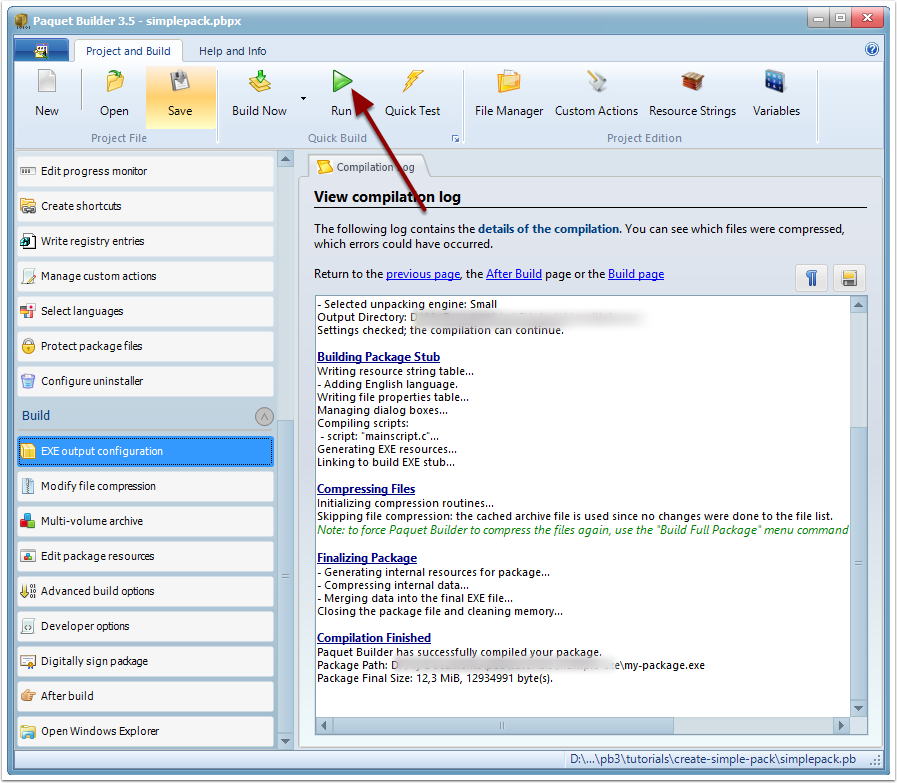
Once the EXE file is compiled, you can test it by clicking Run.
10. Launch the EXE file to see your Welcome screen¶
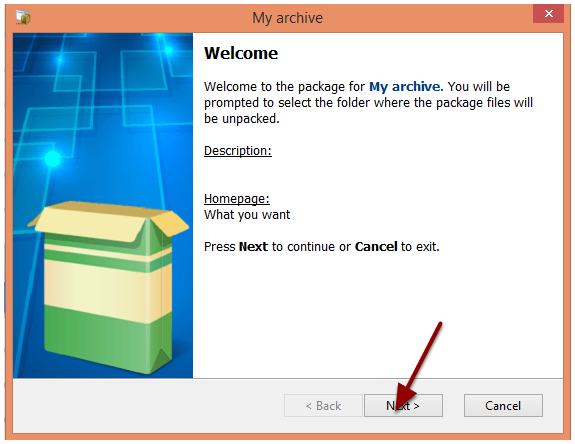
11. Confirm the destination folder prompt¶
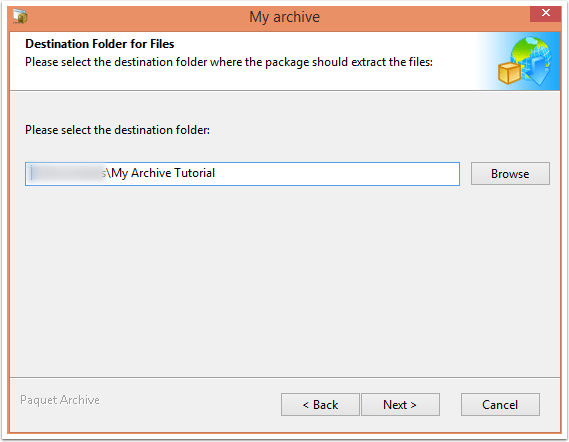
You’ll be prompted to confirm the destination folder as expected.
Of course, you can further customize options like "Paquet Archive" or the images displayed in the wizard.
Don’t hesitate to explore additional help topics using the contents tree on the left.